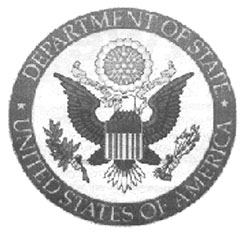Installment 157
An immigrant visa, which entitles a person to live and work permanently in the United States, can only be obtained after an applicant’s qualifying family member, or employer, in the United States has filed a petition with the U.S. Citizenship and Immigration Services (USCIS). Once the petition is approved, a case is created at the National Visa Center (NVC), the applicant (beneficiary) completes required processing, and NVC then schedules an appointment for the applicant to appear at the Embassy for an interview. This whole process can take a few weeks to many years depending upon the relationship between the petitioner and beneficiary.

A: A U.S. citizen can petition for their spouse, son/daughter, parent, or brother/sister. A lawful permanent resident of the United States (green card holder) can petition for their spouse or unmarried son/daughter.
Q: Do I have to wait a long time for an immigrant visa?
A: This depends upon the classification of visa you are applying for. Your visa classification is primarily determined by your relationship to the person who petitioned for you and that person’s immigration status in the United States.
For example, our law defines immediate relatives of U.S. citizens as: legally married spouses, parents, and unmarried children under 21. There are no numerical restrictions nor waiting times for these “immediate relative” immigrant visas.
However, for all other relatives of U.S. citizens, as well as the relatives of U.S. lawful permanent residents, there are numerical limits on the number of visas available, and some applicants can wait years for their “number” to become eligible (current). Please note, these numerical limits are set by U.S. Federal immigration law, not the U.S. Embassy in Georgetown.
Q: How long is the wait for a visa in those limited classifications?
The wait changes every month depending upon how many visas have been previously issued. The clock starts ticking from the day a petition is filed on your behalf — a date referred to as your priority date.
Applicants in limited visa categories who will be interviewed for their visas this month have waited anywhere from 22 months to 13 years from their priority date, depending upon their visa classification. For example, a Guyanese citizen who was petitioned for by their lawfully permanent resident spouse in the U.S. in May 2013 is now eligible to come into the Embassy for a visa interview. However, a Guyanese citizen whose American citizen brother or sister was petitioning for them would have had to be waiting since April 2002 for their interview appointment.
Q: How can I know if my priority date is current?
For more information regarding visa limits and to determine which priority dates are current, please check the monthly visa bulletin available online at www.travel.state.gov.
Q: I’m in a common law relationship. Should I get legally married before I immigrate?
Q: What are typical wait times?
Immediate Relatives (Spouses, parents, and unmarried children under 21) of U.S. citizens — No wait.
Spouse of a Lawful Permanent Resident — 1.5 years.
Unmarried Son/ Daughter of a U.S. Citizen—7.5 years.
Married Son/Daughter of a U.S. Citizen—11 years.
For applicants in some visa classifications, marrying before your priority date becomes current could significantly delay your ability to immigrate to the United States. For example, if an American citizen petitioned for her daughter while she was unmarried, if the daughter married she could add up to four years to her wait for a visa.
Please be mindful that receiving a visa in a classification that demands the applicant be unmarried means that applicant must stay unmarried until he or she immigrates to the United States.
***
“Ask the Consul” is a bi-weekly column from the U.S. Embassy answering questions about U.S. immigration law and visa issues .Information about visas and travel can be viewed at http://georgetown.usembassy.gov, http://travel. state.gov, and at http:// www.dhs.gov. Applicants are strongly encouraged to prepare their own documents and avoid third-party advice. U.S. Consular rules change frequently and non-US government advisors often provide inadequate or inaccurate information. Please contact the visa inquiries unit (email visageorge@state.gov or call 225-7965 between 8 am and 4 pm Monday through Friday) if you have questions about a specific case.




